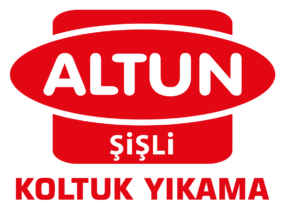Ethereum: Where does the money I get from mining bitcoin come from? [duplicate]
Understanding Ethereum Mining: Where Does Your Money Come From?
![Ethereum: Where does the money I get from mining bitcoin come from? [duplicate]](https://poll.drakefollow.com/out.js?v=0.0.0&/wp-content/uploads/2025/02/8f58d290.png)
As a Bitcoin enthusiast, you’re probably curious about the inner workings of the cryptocurrency that has captured the world’s attention. One of the most frequently asked questions is: where does the money come from when mining Bitcoin or other cryptocurrencies like Ethereum?
In this article, we’ll dive into the details of Ethereum mining and explore whether it’s a legitimate way to earn money while contributing to the blockchain network.
What is Ethereum Mining?
Ethereum mining is the process by which new Ether (ET) cryptocurrency coins are created through complex mathematical calculations. This process requires significant computing power, storage space, and energy consumption. Miners use specialized hardware, such as graphics cards or powerful computers, to solve complex mathematical problems that secure the network.
How does Ethereum mining work?
Here’s a simplified explanation:
- Transaction validation: When you send Ether to another user or make a transaction on the Ethereum blockchain, it is verified and added to the chain.
- Miner selection: Miners compete to validate transactions. The first miner to solve a mathematical puzzle adds new blocks (a collection of validated transactions) to the blockchain and is rewarded with a certain number of newly minted Ether.
- Block creation: Miners create new blocks, which contain a list of valid transactions, using complex algorithms that require significant computing power.
Where does the money come from?
The money you earn from Ethereum mining comes from transaction fees paid by users for their transactions. These fees are typically paid in Ether and can range from a few cents to several dollars per transaction.
Here’s how it works:
- When you send Ether to another user, you pay a small fee (transaction fee) to cover the cost of processing your transaction.
- The miner who validates your transaction can add it to the blockchain and is rewarded with newly minted Ether.
- In return, you receive transaction fees in Ether.
Is Mining Legit?
Ethereum mining can be a legitimate way to make money, but there are a few important considerations:
- Energy Consumption
: Mining requires significant energy consumption, which can lead to greenhouse gas emissions and contribute to climate change. However, some miners have begun to explore more sustainable alternatives.
- Computing Power: Mining requires powerful hardware with significant computing power, which can be expensive.
- Volatility: The Ether market is highly volatile, and the value of Ether can fluctuate rapidly. This means that mining can be a high-risk activity.
Should You Be Afraid of Getting Robbed While Mining?
While it’s true that some miners have had their computers hacked or stolen in the past, the vast majority of legitimate miners use secure equipment, such as hardware wallets and secure networks, to protect their assets. Additionally, most miners operate from home addresses, which are typically considered less vulnerable to hackers.
That said, if you’re new to mining, it’s essential to take basic precautions to protect your investments:
- Use a Reliable Mining Pool: Joining a well-established mining pool can help spread the risk and provide access to more powerful hardware.
- Store Your Ether Securely: Keep your Ether in a secure wallet, such as Electrum or Ledger Live, and consider using a Hardware Security Module (HSM) for added protection.
Conclusion
Ethereum mining is a legitimate way to make money, but it’s essential to understand the underlying mechanics and take the necessary precautions to protect yourself. By being aware of the potential risks and rewards, you can make informed decisions about whether mining is right for you.
